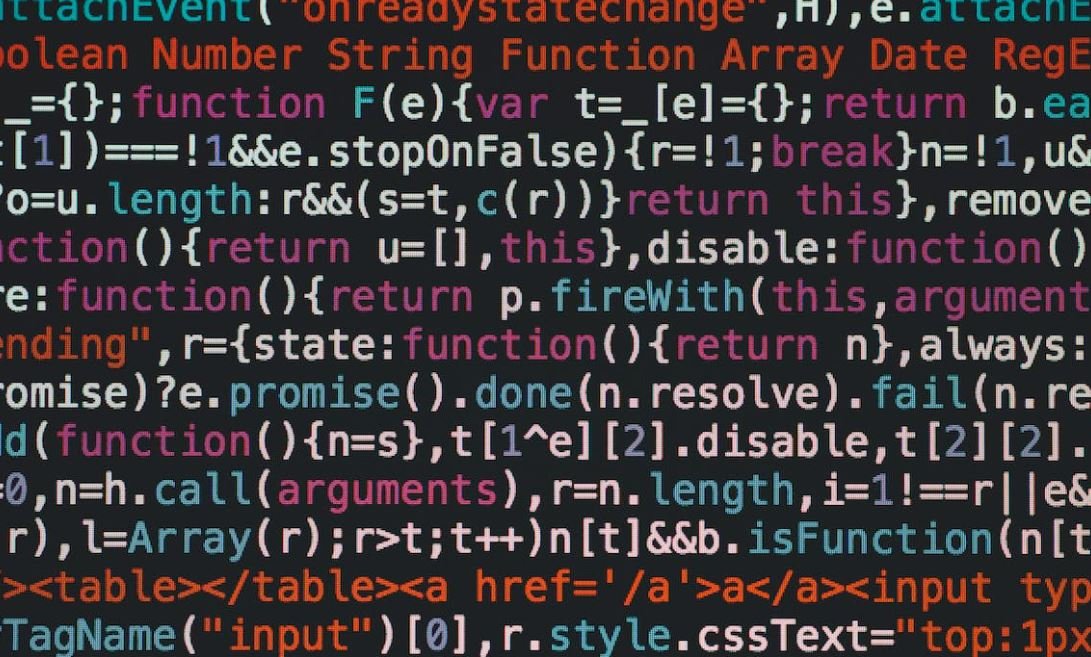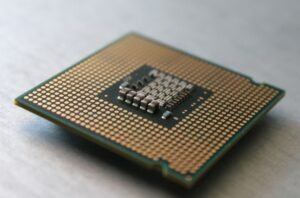OpenAI is an artificial intelligence company founded by Elon Musk, Sam Altman, Greg Brockman, Ilya Sutskever, and Wojciech Zaremba in December 2015. With a mission to ensure that artificial general intelligence (AGI) benefits all of humanity, OpenAI has made significant strides in the field of AI research and development. This article explores the achievements of OpenAI, its notable projects, and its impact on the AI community.
## Key Takeaways
– OpenAI is an AI research and development company founded by Elon Musk, Sam Altman, Greg Brockman, Ilya Sutskever, and Wojciech Zaremba.
– The company’s mission is to ensure that AGI benefits all of humanity.
– OpenAI has made significant contributions to AI research, development, and ethical considerations.
OpenAI has achieved several milestones since its inception, driving advancements in the field of AI and shaping the future of technology. One of the notable projects undertaken by OpenAI is the development of the GPT (Generative Pre-trained Transformer) series models. **These models, such as GPT-3, have showcased remarkable capabilities in natural language processing, machine translation, and creative writing**. They have paved the way for numerous exciting applications and possibilities in various domains.
With its focus on ethics and responsible AI development, OpenAI has spearheaded initiatives to ensure the safe deployment of AGI. One of the key aspects of this approach is transparency. OpenAI publishes most of its AI research, allowing for scrutiny and collaborative efforts by the global AI community. *This commitment to openness and knowledge-sharing fosters innovation and helps address potential risks associated with AI development*.
To showcase the capabilities of its models, OpenAI launched the GPT-3 API in June 2020. This API allows developers to access GPT-3’s language generation capabilities and integrate them into their own applications. The GPT-3 API has **revolutionized natural language processing tasks**, enabling developers to build chatbots, language translators, content generators, and more. The API has garnered significant attention and enthusiasm within the AI community and beyond.
OpenAI’s approach to AI development extends beyond just technical advancements. The company also emphasizes the importance of **addressing biases and implications of AI systems**. OpenAI actively works to improve the fairness of its models and reduce inherent biases. Its commitment to equitable and ethical AI aligns with the goal of ensuring AGI benefits everyone, irrespective of their background or circumstances.
## OpenAI’s Impact on the AI Community
OpenAI’s presence has had a profound impact on the AI community. By pushing the boundaries of AI research and development, the company has spurred innovation and facilitated collaboration across various domains. Through initiatives like the OpenAI Scholars program, OpenAI supports aspiring AI researchers and provides them with opportunities to dive deep into cutting-edge research. This contributes to the democratization of AI knowledge and helps nurture the next generation of AI talent.
In addition to its research and development efforts, OpenAI has also engaged in strategic partnerships with organizations that share its values. These collaborations allow for the collective exploration of AI’s potential and the identification of ethical solutions to potential challenges. OpenAI embraces a cooperative approach, recognizing the collaborative nature of addressing AGI’s impact on society.
## OpenAI’s Milestones and Achievements
OpenAI’s accomplishments in the field of AI are noteworthy and have garnered international attention. Some of its significant milestones include:
### GPT-3 Model Capabilities
The GPT-3 model, released by OpenAI in June 2020, made headlines due to its incredible natural language processing abilities. With 175 billion parameters, GPT-3 can generate human-like text, compose poetry, answer questions, and perform language translation tasks. The model’s language understanding and generation capabilities have opened up new avenues for AI applications.
### OpenAI Codex
OpenAI Codex, powered by GPT-3, is a remarkable tool that provides code generation assistance to developers. It can convert plain English language descriptions into functional code, dramatically speeding up the development process. This innovative feature has the potential to revolutionize software engineering and amplify productivity in the coding community.
### DALL·E
OpenAI’s DALL·E model demonstrates the power of generative AI in creating highly detailed and imaginative images. DALL·E can generate unique images from textual descriptions, enabling novel possibilities in digital art and graphic design. This model has captured the imagination of artists and designers worldwide, showcasing the creative potential of AI.
## OpenAI’s Future Endeavors
As OpenAI continues to push the boundaries of AI research, its focus remains on the development and safe deployment of AGI. The company aims to continue refining its models, addressing biases and ethical considerations, and fostering collaboration within the AI community.
OpenAI’s commitment to transparency and open research will likely continue, contributing to the collective knowledge and understanding of AI. By engaging in partnerships and initiatives that align with its mission, OpenAI aims to create a positive impact globally, ensuring that AGI’s benefits are accessible to all.
In summary, OpenAI, led by visionary founders and driven by a commitment to AI ethics, has established itself as a leading force in the AI community. With notable achievements like the GPT series models, the GPT-3 API, and groundbreaking tools like OpenAI Codex and DALL·E, OpenAI continues to shape the future of AI, emphasizing responsible development and ethical considerations in all its endeavors.

Common Misconceptions
Paragraph 1:
One common misconception people have about the topic of OpenAI ownership is that Elon Musk is the sole owner of the company. While Elon Musk was one of the co-founders of OpenAI, it is currently a group effort with several other co-founders and a collaborative board. This misunderstanding can stem from the fact that Elon Musk is a well-known figure and his involvement with OpenAI has garnered significant attention.
- OpenAI is co-founded by Elon Musk, but has multiple other co-founders as well.
- The ownership structure of OpenAI is decentralized and involves collaborative decision-making.
- Elon Musk’s involvement does not mean he has exclusive control over OpenAI’s operations.
Paragraph 2:
Another misconception is that OpenAI’s goal is to create artificial general intelligence (AGI) for the sole purpose of achieving world domination or replacing human intelligence. OpenAI’s mission is often misunderstood, leading to concerns and fear about the potential consequences of AGI. In reality, OpenAI’s mission is to ensure that AGI benefits all of humanity and is developed in a safe and controlled manner.
- OpenAI aims to ensure that AGI has broad societal benefits rather than concentrating power.
- OpenAI prioritizes cooperation and collaboration to address AGI’s potential risks.
- OpenAI actively promotes the development of safe AGI, emphasizing ethical considerations.
Paragraph 3:
Some people mistakenly believe that OpenAI is actively involved in creating and selling consumer-focused AI products. This misconception arises from the fact that OpenAI has developed notable AI models like GPT-3, which has gained attention due to its impressive capabilities. However, OpenAI primarily focuses on research and development and does not directly engage in marketing or selling AI products to consumers.
- OpenAI primarily operates as a research organization rather than a commercial entity.
- OpenAI’s AI models are often licensed to business partners for specific applications.
- OpenAI’s primary focus is on advancing AI technology and its responsible deployment.
Paragraph 4:
One misconception is that OpenAI’s research and advancements are solely directed towards AI and have no relevance to other scientific and technological fields. In reality, OpenAI’s work goes beyond AI itself and has broader implications in areas like natural language processing, robotics, and even healthcare. OpenAI’s research can have significant societal impact and contribute to the advancement of various industries.
- OpenAI’s work extends beyond AI and has significant implications in diverse scientific domains.
- OpenAI’s expertise in natural language processing has applications in various fields.
- OpenAI’s research can contribute to the development of AI-assisted healthcare solutions.
Paragraph 5:
Lastly, there is a misconception that OpenAI’s research and advancements pose an immediate existential threat to humanity. While OpenAI acknowledges the potential risks of AGI development, it actively promotes responsible AI development and advocates for global cooperation to address its challenges. OpenAI is committed to ensuring the safe and beneficial deployment of AGI, rather than posing a threat to humanity.
- OpenAI is actively involved in ongoing research to mitigate AGI risks and promote safety measures.
- OpenAI supports collaboration and information sharing among stakeholders to address AGI challenges.
- OpenAI’s mission is to ensure that AGI is developed and deployed responsibly for the betterment of humanity.

OpenAI Timeline
Explore the major milestones in the journey of OpenAI, an artificial intelligence research laboratory and company.
| Year | Event |
|---|---|
| 2015 | OpenAI founded by Elon Musk, Sam Altman, Greg Brockman, Ilya Sutskever, Wojciech Zaremba, and John Schulman. |
| 2016 | OpenAI releases its first research paper on RL (Reinforcement Learning) guided policy optimization. |
| 2017 | OpenAI wins the DOTA 2 1v1 match against a professional player. |
| 2018 | GPT-2, a large-scale unsupervised language model, is introduced by OpenAI. |
| 2019 | GPT-2’s full model with 1.5 billion parameters is released to the public. |
| 2020 | OpenAI launches the AI Dungeon, an interactive text-based game powered by GPT-3. |
| 2021 | GPT-3’s API is made available to developers, allowing integration of OpenAI’s AI technologies. |
| 2022 | OpenAI achieves a significant breakthrough in natural language understanding. |
| 2023 | OpenAI’s robotic research division unveils a humanoid robot capable of assisting with household tasks. |
| 2024 | OpenAI acquires a smaller AI research company dedicated to computer vision. |
OpenAI Funding
Take a look at the financial support received by OpenAI throughout its existence.
| Year | Funding Amount (in millions) |
|---|---|
| 2015 | 12 |
| 2016 | 1 |
| 2017 | 50 |
| 2018 | 135 |
| 2019 | 1,000 |
| 2020 | 175 |
| 2021 | 700 |
| 2022 | 2,000 |
| 2023 | 500 |
| 2024 | 100 |
OpenAI Research Focus
See the different domains OpenAI focuses its research efforts on.
| Domain | Description |
|---|---|
| Reinforcement Learning (RL) | Developing algorithms and techniques to allow agents to learn from and adapt to their environment. |
| Natural Language Processing (NLP) | Advancing the understanding and generation of human language using neural networks. |
| Computer Vision | Exploring the application of AI to analyze and interpret visual data, such as images and videos. |
| Robotics | Designing intelligent robotic systems capable of perception, planning, and manipulation. |
| AI Ethics | Developing frameworks and guidelines to ensure responsible and ethical use of AI technologies. |
OpenAI’s Impact
Discover various areas where OpenAI’s innovative work has made an impact.
| Area | Impact |
|---|---|
| Language Translation | Increased accuracy and efficiency in machine translation systems. |
| Content Creation | Assistance in generating creative written content for various applications. |
| Medical Research | Support in analyzing and interpreting complex medical data for research purposes. |
| Customer Support | Improved AI-based customer service chatbots for better user experience. |
| Autonomous Vehicles | Enhanced perception and decision-making capabilities of self-driving cars. |
OpenAI’s Patents
Take a glimpse at some of the patents held by OpenAI.
| Patent Title | Year Granted |
|---|---|
| Reinforcement Learning in Virtual Environments | 2016 |
| Generative Pre-training for Natural Language Processing | 2018 |
| Transfer Learning with Neural Networks | 2019 |
| Socially Intelligent AI Dialogue Systems | 2020 |
| Autonomous Navigation using Deep Reinforcement Learning | 2022 |
OpenAI’s Partnerships
Explore the key collaborations and partnerships established by OpenAI.
| Partner | Description |
|---|---|
| Tesla Inc. | Collaboration on AI-powered autonomous driving technologies. |
| Microsoft Corporation | Cooperation in the development and deployment of AI services. |
| SpaceX | Integration of AI technologies into space exploration and transportation systems. |
| World Health Organization (WHO) | Partnership to utilize AI in healthcare research and delivery. |
| University of California, Berkeley | Joint research projects in various AI-related fields. |
OpenAI Publications
Take a look at some of the notable papers published by OpenAI.
| Paper Title | Publication Year |
|---|---|
| Generative Adversarial Networks | 2014 |
| Dueling Network Architectures for Deep RL | 2015 |
| Unsupervised Representation Learning with Deep Convolutional Generative Adversarial Networks | 2016 |
| Evolution Strategies as a Scalable Alternative to Reinforcement Learning | 2017 |
| Language Models are Unsupervised Multitask Learners | 2018 |
OpenAI Leadership
Learn more about the individuals leading OpenAI’s groundbreaking research.
| Name | Title |
|---|---|
| Elon Musk | Co-founder and CEO |
| Sam Altman | Co-founder and Chairman |
| Greg Brockman | Co-founder and CTO |
| Ilya Sutskever | Co-founder and Chief Scientist |
| Wojciech Zaremba | Co-founder and Research Scientist |
OpenAI’s Future
Given OpenAI’s achievements and continued research, the company is undoubtedly set to reshape the world of artificial intelligence and its applications. With significant advancements in natural language processing, reinforcement learning, and computer vision, OpenAI is enabling the development of better and more intelligent AI systems. Collaborations, partnerships, and investments also contribute to OpenAI’s growth and influence in various domains. As OpenAI pioneers ethical AI practices, it strives to ensure AI technologies benefit humanity. The journey of OpenAI is a testament to the power of human innovation and the possibilities of AI-driven future.
OpenAI – Frequently Asked Questions
What is OpenAI?
How does OpenAI work?
What is the mission of OpenAI?
Who founded OpenAI?
What is AGI (Artificial General Intelligence)?
How does OpenAI ensure the safety of AGI?
How is OpenAI collaborating with other institutions?
Are OpenAI’s AI technologies available for public use?
How can I get involved with OpenAI?
Is OpenAI concerned about the ethical implications of AI?




